Filter by
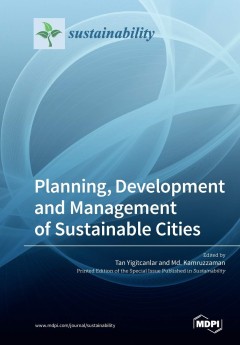
Planning, Development and Management of Sustainable Cities
The concept of ‘sustainable urban development’ has been pushed to the forefront of policymaking and politics as the world wakes up to the impacts of climate change and the destructive effects of the Anthropocene. Climate change has emerged to be one of the biggest challenges faced by our planet today, threatening both built and natural systems with long-term consequences, which may be irrev…
- Edition
- -
- ISBN/ISSN
- -
- Collation
- -
- Series Title
- -
- Call Number
- 628 PLA
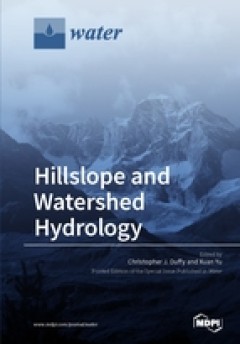
Hillslope and Watershed Hydrology
Watershed hydrology is driven by climate forcing, near ground surface characteristics, and human activities, addressing a wide spectrum of environmental and water resource problems regarding both scientific-driven questions and practical engineering issues. This book collates watershed problems and solutions from around the world covering diverse climate types. These cases show complex interact…
- Edition
- -
- ISBN/ISSN
- -
- Collation
- -
- Series Title
- -
- Call Number
- 628 HIL
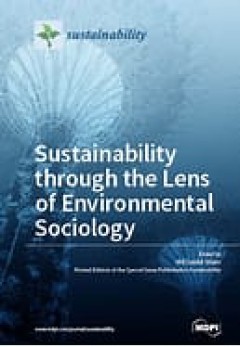
Sustainability through the Lens of Environmental Sociology
Our planet is undergoing radical environmental and social changes. Sustainability has now been put into question by, for example, our consumption patterns, loss of biodiversity, depletion of resources, and exploitative power relations. With apparent ecological and social limits to globalization and development, current levels of consumption are unsustainable, inequitable, and inaccessible to th…
- Edition
- -
- ISBN/ISSN
- 978-3-03842-661-5
- Collation
- -
- Series Title
- -
- Call Number
- 333 SUS
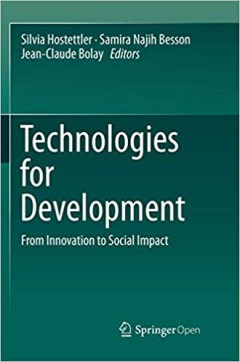
Technologies for Development : From Innovation to Social Impact
This open access book presents 18 case studies that explore current scientific and technological efforts to address global development issues, such as poverty, from a holistic and interdisciplinary point of view, putting actual impacts at the centre of its analysis. It illustrates the use of technologies for development in various fields of research, such as humanitarian action, medical and inf…
- Edition
- -
- ISBN/ISSN
- 978-3-319-91068-0
- Collation
- XXIII, 225 halaman
- Series Title
- -
- Call Number
- 628 TEC
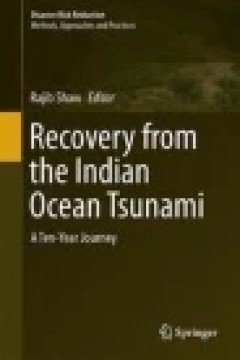
Recovery from the Indian Ocean Tsunami: A Ten-Year Journey
During the past 10 years following the 2004 Indian Ocean Tsunami, invaluable lessons have been learned and great changes have been observed. Immediately after the disaster, the second World Conference on Disaster Reduction was held in Kobe, Japan, and formulated the Hyogo Framework for Action (HFA: 2005–2015). HFA provided a platform and framework for changes and innovations, many of which we…
- Edition
- -
- ISBN/ISSN
- 978-4-431-55117-1
- Collation
- -
- Series Title
- -
- Call Number
- 333.72
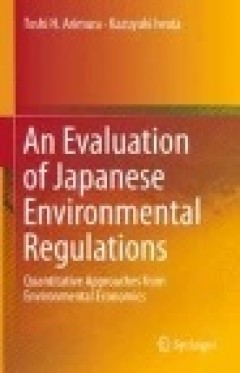
An Evaluation of Japanese Environmental Regulations: Quantitative Approaches …
Focusing on air pollution, energy efficiency and climate change, this book provides an introduction to Japan’s environmental policies and regulations, and offers economic analyses and RIAs (Regulatory Impact Analysis) of environmental regulations implemented or planned by the national and local governments. The opening chapter reviews environmental economics and outlines the current status of…
- Edition
- Ed. 1
- ISBN/ISSN
- 978-94-017-9947-8
- Collation
- XIII, 191
- Series Title
- -
- Call Number
- 551.6 ARI e
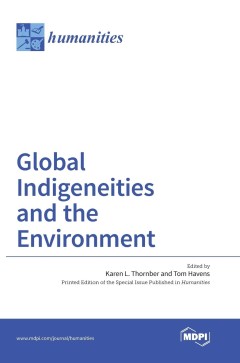
Global Indigeneities and the Environment
Global Indigeneities and the Environment—covering fields from American Indian Studies, anthropology, communications, ethnoecology, ethnomusicology, geography, global studies, history, and literature, the purpose of the Special Issue is to give new understandings of the concept of global indigeneities and to showcase some of the most promising work in the field to date.
- Edition
- -
- ISBN/ISSN
- 978-3-03842-241-9
- Collation
- -
- Series Title
- -
- Call Number
- 628 GLO
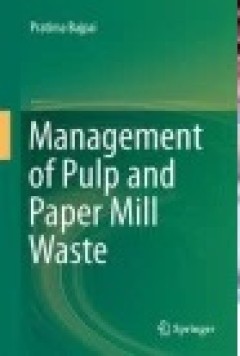
Management of Pulp and Paper Mill Waste
Pulp and paper mill industries are always associated with the disposal problem of highly contaminated sludge or bio-solids. The development of innovative systems to maximize recovery of useful materials and/or energy in a sustainable way has become necessary. The management of wastes, in particular of industrial waste, in an economically and environmentally acceptable manner is one of the…
- Edition
- -
- ISBN/ISSN
- 978-3-319-11788-1
- Collation
- -
- Series Title
- -
- Call Number
- -
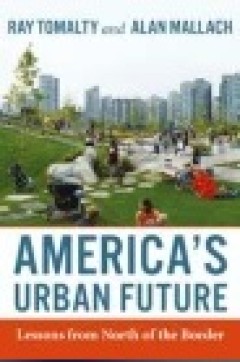
America's Urban Future: Lessons from North of the Border
In this book, urban experts Tomalty and Mallach show how Canada, a country similar to the US in many respects, has fostered healthier urban centers and more energy‑ and resource‑efficient suburban growth. They call for a rethinking of US public policies across those areas and look closely at what may be achievable at federal, state, and local levels in light of both the constraints and oppo…
- Edition
- Ed. 1
- ISBN/ISSN
- 978-1-61091-597-7
- Collation
- VIII, 300
- Series Title
- -
- Call Number
- 307.2 TOM a
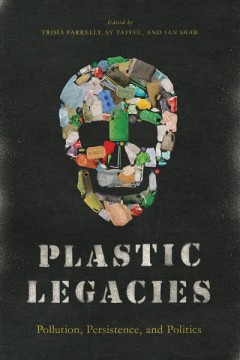
Plastic Legacies Pollution, Persistence, and Politics
The complexities surrounding the global plastic crisis require an interdisciplinary approach and the materialities of plastic demand new temporalities of thought and action. Plastic Legacies brings together scholars from the fields of marine biology, psychology, anthropology, environmental studies, Indigenous studies, and media studies to investigate and address the urgent socio-ecological chal…
- Edition
- -
- ISBN/ISSN
- 9781771993272.01
- Collation
- -
- Series Title
- -
- Call Number
- 6 x 9, 288 pages
 Computer Science, Information & General Works
Computer Science, Information & General Works  Philosophy & Psychology
Philosophy & Psychology  Religion
Religion  Social Sciences
Social Sciences  Language
Language  Pure Science
Pure Science  Applied Sciences
Applied Sciences  Art & Recreation
Art & Recreation  Literature
Literature  History & Geography
History & Geography